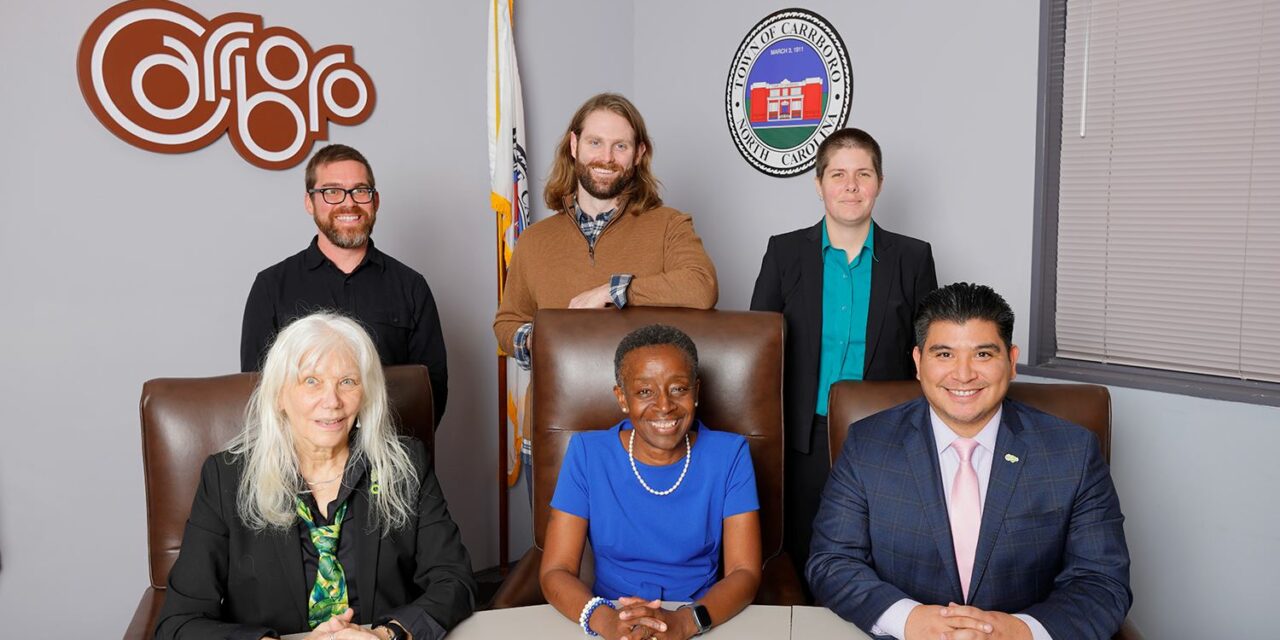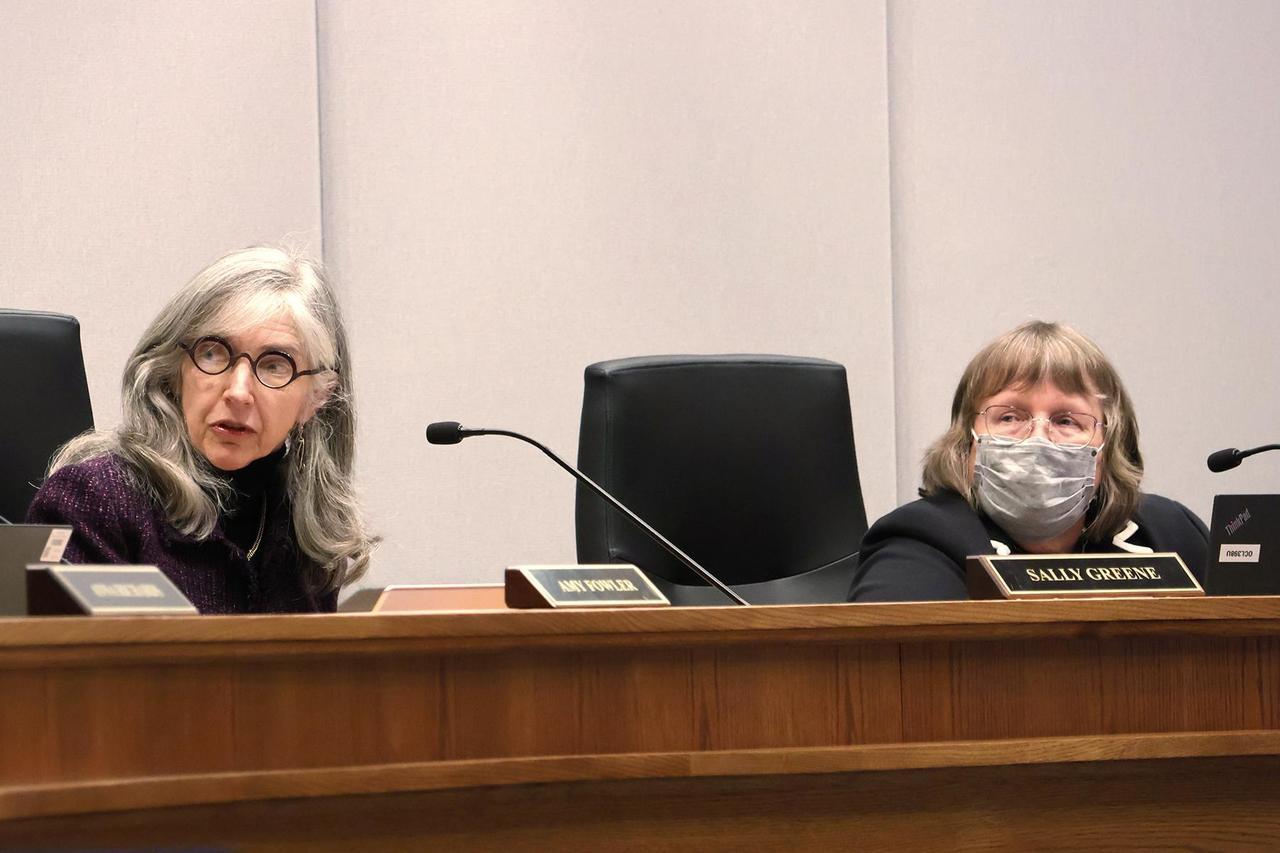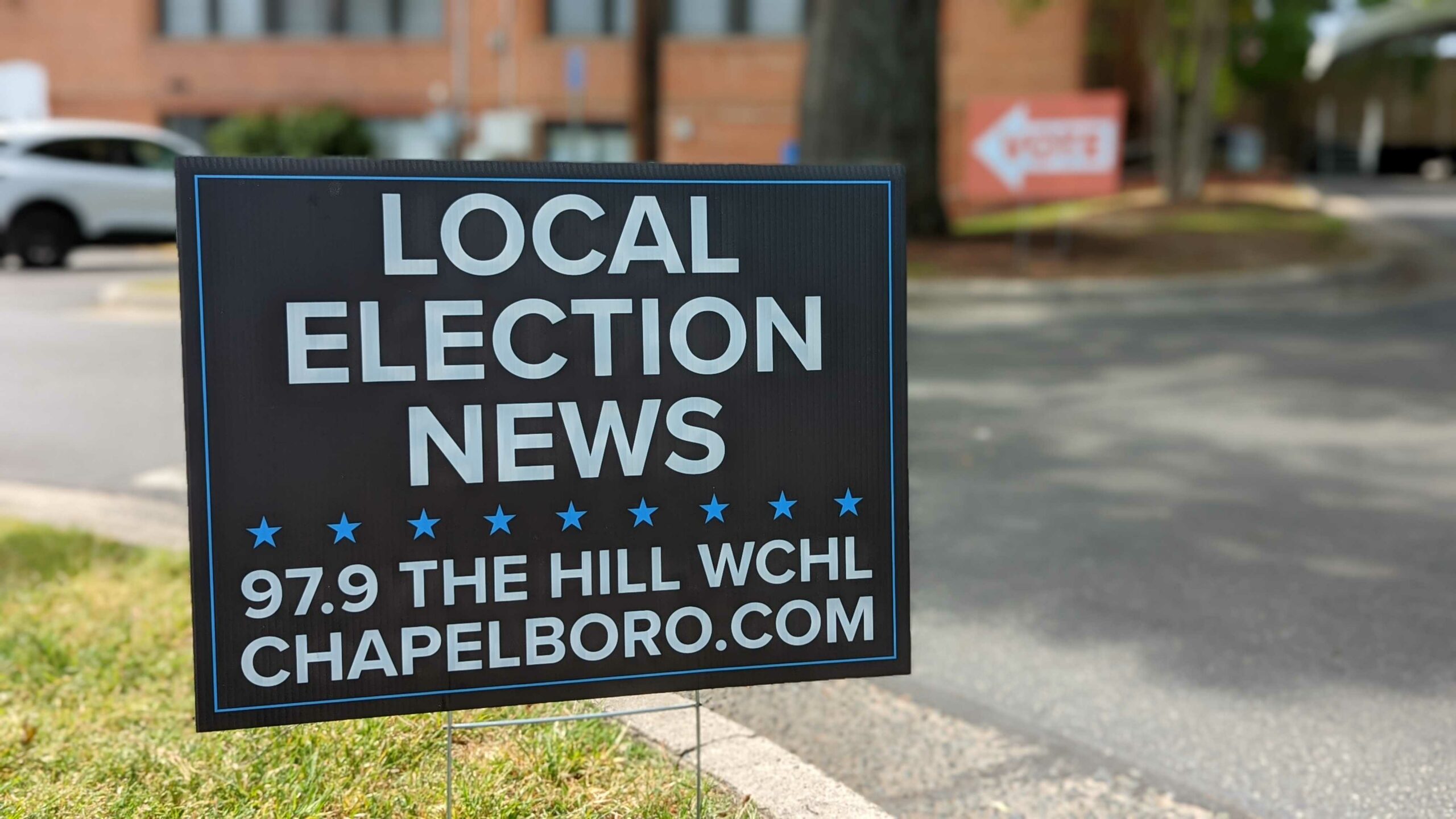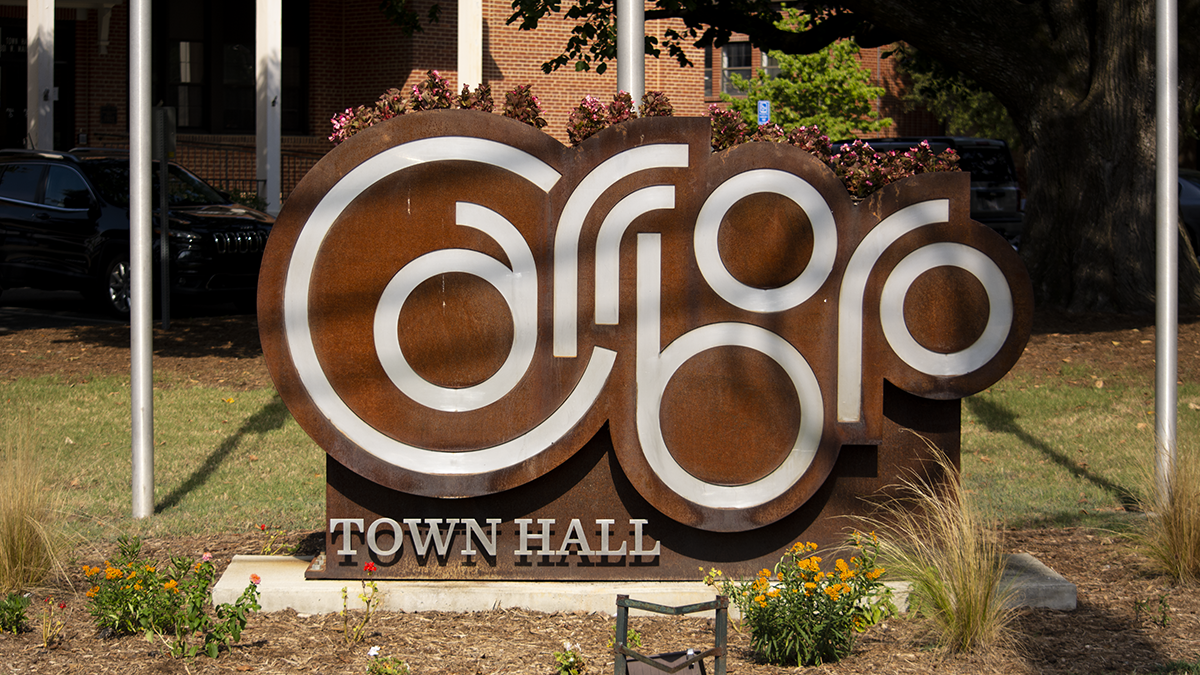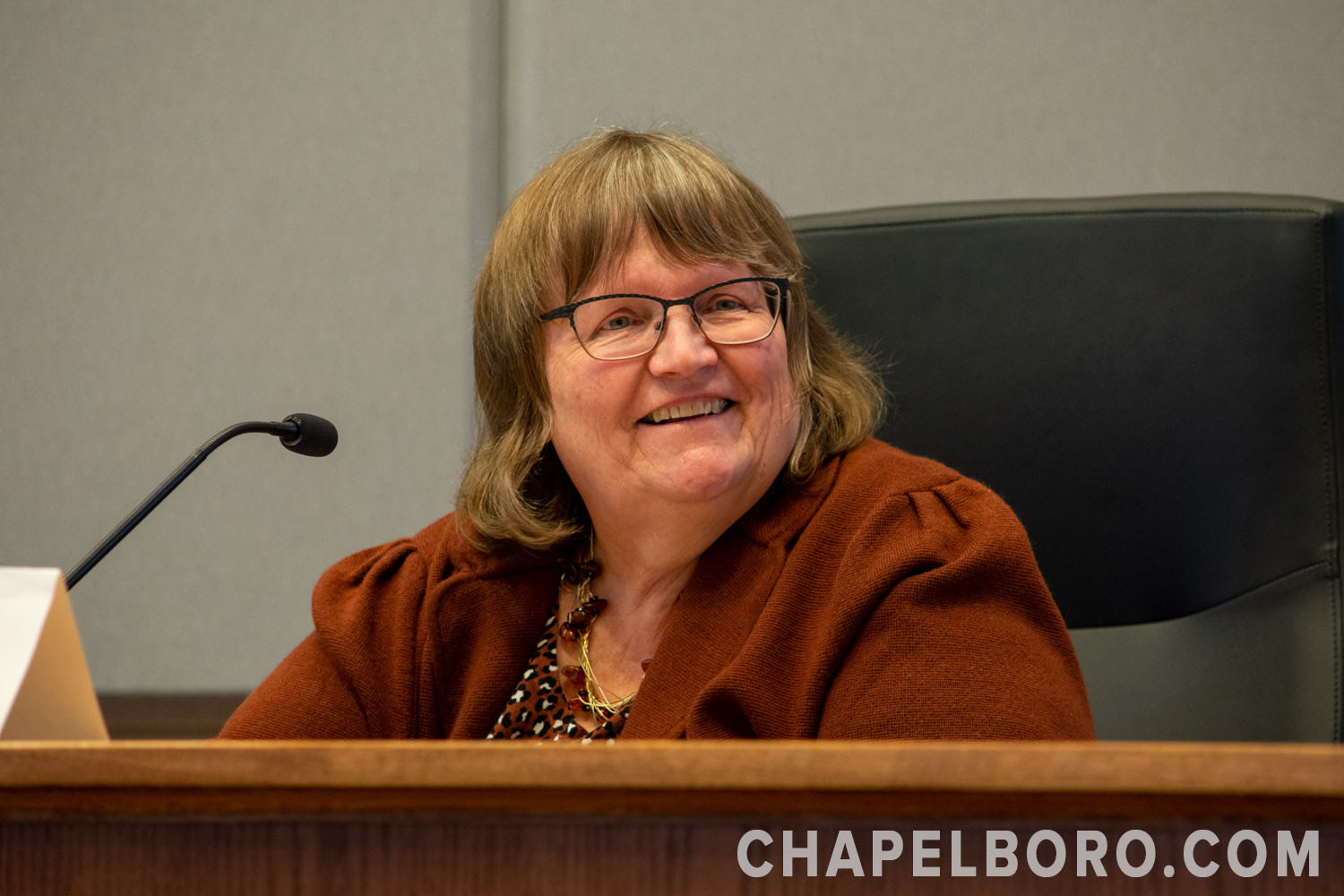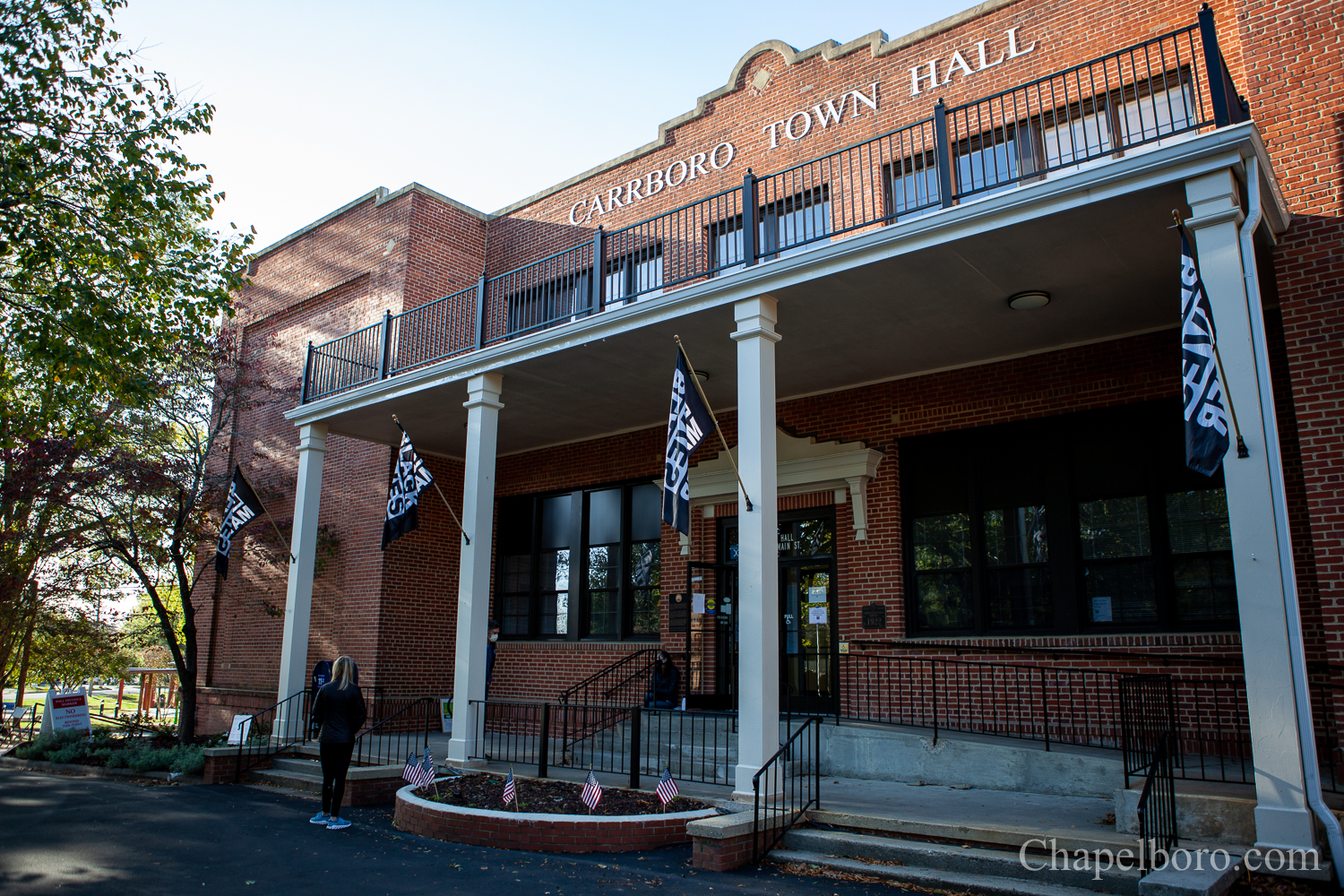The Carrboro Town Council approved a resolution to expand Chapel Hill’s water and sewer management boundary farther south toward Chatham County. The resolution, which was passed by Chapel Hill in November, must be approved by all members of the Water and Sewer Management Planning Boundary Agreement (WASMPBA) established in 2001. The three remaining members of WASMPBA yet to vote on the expansion are the Orange Water and Sewer Authority (OWASA), the Town of Hillsborough, and the Orange County Government.
The proposal incorporates 360 acres, or 139 parcels, along U.S. 15-501 into the urban services boundary of Chapel Hill. The proposal does not make any changes to the rural buffer zone and would not require any rezoning.
During the January 9 Carrboro Town Council meeting when members heard an introduction on the amendment, they directed the town staff to prepare a resolution approving the agreement for a February meeting. They also requested information on how the resolution impacts watershed boundaries, stormwater services, Chapel Hill’s affordable housing requirements for the affected areas, and mechanisms for long-term affordability related to density increases.
Chapel Hill Planning Director Judy Johnson addressed affordable housing. She said the Town of Chapel Hill must follow the Inclusionary Zoning Ordinance established in 2011. The ordinance applies to developments with five or more for-sale units and rental units. Whereas affordability requirements for for-sale units span 99 years, the rental unit requirements are around 30 years.
The ordinance provides that at least 15 percent of any future housing units are affordable for low or moderate-income earners. Low and moderate-income earners are considered by the ordinance as those who make at or below 65 to 80 percent of the average median income (AMI). Half of the 15 percent provide for earners below the 65 percent AMI level, while the other half will be targeted to meet the price-points of the 80 percent AMI earners.
“We have been trying to push those AMI levels lower,” said Johnson, “because from what I understand, I’m not the housing person, but 80 percent AMI equals almost a fair market rent.”
“One of the things I’ve been asked about is, ‘what are we thinking of in this area,’” continued Johnson. “This last year we spent a tremendous amount of time through, we called it gentle density, missing middle, trying to do that in-fill type of housing stock. Understanding the scarcity of homes here that are not capital ‘A’ affordable, but affordable to most of us, and trying to create that type of housing stock there. The interest is along this corridor, where we know we will have and do have good transit services, that we have housing opportunities – density. We’re looking for triplexes, quadplexes, cottage courts, town homes, that sort of thing.”
During the Chapel Hill Town Council meeting in November, President of the Chamber for a Greater Chapel Hill Carrbroro Aaron Nelson spoke about how the Chamber picked the proposed expansion location over others in its 2022 petition for the services expansion.
“The Chamber hears from local businesses, and the hospital, and others that one of their number one problems is recruiting and retaining employees,” said Nelson. “They put that to two things: availability of housing affordability and child care.”
Vice President for Advocacy at the Chamber for a Greater Chapel Hill-Carrboro Ian Scott was present at the February 6 Carrboro meeting. He emphasized the resolution does not approve any other development and that each developer will have to go through a review process consistent with any future rezoning. Future rezoning will also have to be consistent with Chapel Hill’s Land Use Management Ordinance.
“And finally, I’d like to ask you to send that signal in with your vote, that this is a region that really does put its actions where our mouths are on affordable housing,” said Scott. “That really is the biggest point here. There’s no way to deliver units at a price-point affordable to most of the people working in our community at the lot size that would be required in this area.”
“If we’re not able to build units that are affordable to people who work in our community in the area where we’re building transit for this community ” Scott continued, “where else can we do it? This is an important location, and we need to send the signal now that the intent is to plan this properly, do it well, but give the predictability to the land-owners in that area to know what’s coming.”
Council Member Randee Haven O’Donnell asked about the timeline of conducting environmental studies on affected areas of the expansion.
“When folks in the community are asking for an environmental study,” they said, “or a comprehensive plan looking at the environmental impacts, why wouldn’t we want to do that?”
Johnson said conducting an environmental study makes sense only if the water and sewer boundary is passed by all relevant jurisdictions because it would be expensive and time consuming.
“If we’re not going to expand the water and sewer boundary,” Johnson said, “we don’t want to allocate and spend all that money.”
Haven O’Donnell also asked about if there have been considerations of strategies to promote home ownership compared to rental units for future developments in the area.
“It’s not really so much about the 21 affordable units that could be the 15 percent,” said Haven-O’Donnell. “It’s what is being planned for so that affordable housing is being predicated on helping to establish pathway for lease-to-own, or creating intergenerational wealth. That’s really what’s missing: starter homes and ways that folks get into the market. Rentals do not put anybody in the market. In fact, they’re an obstacle because it’s money that they’re not banking, they’re losing it. So has that been part of the conversation at all? Because I love the idea of town homes, but they should in some way create an opportunity for intergenerational wealth.”
Johnson said Chapel Hill cannot regulate if developments are for sale or rent. She also said the need for rentals is important because it accounts for around half the housing market in Chapel Hill.
“I know it’s what they tell you, it’s one of the best things to do for your wealth is to have home ownership,” said the Chapel Hill planner, “but not everybody falls into that. So creating opportunities for different options.”
Council Member Catherine Fray said because the land is in the extraterritorial jurisdiction (ETJ), the process of zoning the area to support clear density and bring inclusionary zoning would have to be provided to Orange County for its review.
“My understanding is that that is underway,” said Fray, “but even were it not, that’s something that can be pursued in parallel with the process. And I would certainly suggest that we all encourage our colleagues on the Chapel Hill Town Council to pursue that up-zoning with appropriate speed, so that we know what will be built in the area being provided with sewer service, is what I think both towns are in agreement that we’d like to have more of.”
Council Member Eliazar Posada voted in support of the extension, encouraging his Chapel Hill peers to move forward
“I am fully in support of this resolution,” said Posada. “I think, for many reasons I already mentioned, affordable housing is one of the things that we need to have more of. I would, as Council Member Fray mentions, encourage our colleagues in Chapel Hill to move forward with some of these processes whenever possible.”
Council Member Jason Merrill said he thought the plan was not complete enough for him to support at this stage of the process.
“The development of more transit-oriented and affordable housing is a noble and attainable goal,” said Merrill, “and I’m cautiously optimistic about this plan as presented, but the thought of performing an action without a more complete plan in place gives me pause. So I will become an enthusiastic supporter of this plan when we have something developed that spells out more specifically how we can expect this action to get us to that result.”
Mayor Barbara Foushee addressed the presenters from the Carrboro and Chapel Hill town staffs, and said all her questions about the resolution were answered.
“The possibility of more affordable housing, missing middle housing, is very exciting for me,” said Foushee. “Not to mention having diverse types of housing stock that kind of spans a broad socioeconomic status or statuses. So, I’m in favor of voting for this item this evening.”
The council passed the resolution four to two, with council members Merrill and Haven-O’Donnell casting the two votes against.
The Town of Hillsborough is the next WASMPBA member scheduled to address expansion of Chapel Hill’s water and sewer service boundary on February 12. OWASA will address the resolution on March 14 followed by Orange County on April 2.
To watch the full meeting from February 6, click here.
Photo via the Town of Carrboro.
Chapelboro.com does not charge subscription fees, and you can directly support our efforts in local journalism here. Want more of what you see on Chapelboro? Let us bring free local news and community information to you by signing up for our newsletter.

